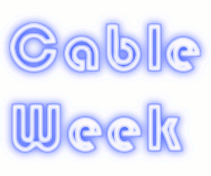
An artist rendering of Don River Park, part of the mixed-use spaces that hallmark the Toronto Waterfront revitalization project.
About seven years ago, Rochester’s Fast Ferry offered daily service between Rochester, N.Y. and Toronto’s Waterfront. Tens of millions of dollars later, the Rochester Ferry Company discovered that nobody in southern Ontario was that interested in a shortcut to Rochester, many locals found driving to Canada’s largest city faster, more convenient, and cheaper, and the point of arrival on the Canadian side was hardly a draw — situated in a rundown, seedy industrial wasteland.
By the end of 2006, the ferry was sold and sent on its way to Morocco, the CBC got a barely used International Marine Passenger Terminal (built for the Rochester ferry) to use as a set location for its TV crime drama The Border, and the rundown waterfront was well-embarked on a major reconstruction effort.
This week, Toronto’s Waterfront learned it was getting a broadband makeover as well, with the forthcoming launch of insanely fast 10/10Gbps fiber broadband for business and 100/100Mbps for condo dwellers along the East Bayfront and West Don Lands.
Best of all, Beanfield Metroconnect, the parent company responsible for constructing the network, promises no Internet Overcharging schemes for residents and businesses… forever. No usage caps, no throttled broadband speeds, no overlimit fees. Pricing is more than attractive — it’s downright cheap for Toronto: $60 a month for unlimited 100/100Mbps broadband, $30 a month for television service, and as low as $14.95 for phone service. Bundle all three and knock another 15 percent off the price. The provider is even throwing in free Wi-Fi, which promises to be ubiquitous across the Waterfront.
The project will leapfrog this Toronto neighborhood into one of the fastest broadband communities in the world.
“Having this sort of capacity available to residents will allow for a whole new world of applications we haven’t even conceived of yet,” said chief executive Dan Armstrong.
 The rest of Toronto, in comparison, will be stuck in a broadband swamp courtesy of Rogers Cable and Bell, where average speeds hover around 5Mbps, with nasty usage caps and overlimit fee schemes from both providers. DSL service in the city is notoriously slow and expensive, as Bell milks decades-old copper wire infrastructure long in need of replacement.
The rest of Toronto, in comparison, will be stuck in a broadband swamp courtesy of Rogers Cable and Bell, where average speeds hover around 5Mbps, with nasty usage caps and overlimit fee schemes from both providers. DSL service in the city is notoriously slow and expensive, as Bell milks decades-old copper wire infrastructure long in need of replacement.
The public-private broadband project is a welcome addition for an urban renewal effort that has been criticized at times for overspending. Created in 2001, Waterfront Toronto has a 25-year mandate to transform 800 hectares (2,000 acres) of brownfield lands on the waterfront into a combination of business and residential mixed-use communities and public spaces. At least $30 billion in taxpayer funds have been earmarked for the renewal project, although project managers say no taxpayer dollars will be spent on the broadband project.
Waterfront Toronto’s efforts have been recognized as bringing Toronto’s first “Intelligent Community” to the city with the construction of the open access fiber network.
 Still, the public corporation has its critics. Earlier this spring Toronto city councilman Doug Ford called the urban renewal project a boondoggle. Other conflicts rage with the Toronto Transit Commission and the mayor’s office over other redevelopment projects. But the revitalization project’s broadband initiative has significant support, especially among knowledge workers that could eventually become residents… and paying customers.
Still, the public corporation has its critics. Earlier this spring Toronto city councilman Doug Ford called the urban renewal project a boondoggle. Other conflicts rage with the Toronto Transit Commission and the mayor’s office over other redevelopment projects. But the revitalization project’s broadband initiative has significant support, especially among knowledge workers that could eventually become residents… and paying customers.
The 21st century broadband project is also likely to bring broadband envy across the entire GTA, who will wonder why service from the cable and phone companies is so much slower and more expensive.
For broadband enthusiasts, Toronto’s broadband future looks much brighter than yesterday’s failed ferry service, which proves once again that regardless of the technology — slow, expensive, and inconvenient service will never attract much interest from the value-conscious public.
[flv width=”640″ height=”380″]http://www.phillipdampier.com/video/TVO The Need for High Speed 5-2010.flv[/flv]
Canada’s digital networks are some of the slowest in the world, running between one hundred to a thousand times slower than other countries in the developed world. In this episode of “Our Digital Future – The Need for High-Speed,” Bill Hutchison, Executive Director of Intelligent Communities for Waterfront Toronto describes the sorry state of Canada’s digital infrastructure, stressing the need for major investments in advanced broadband networks. (4 minutes)


 Subscribe
Subscribe



